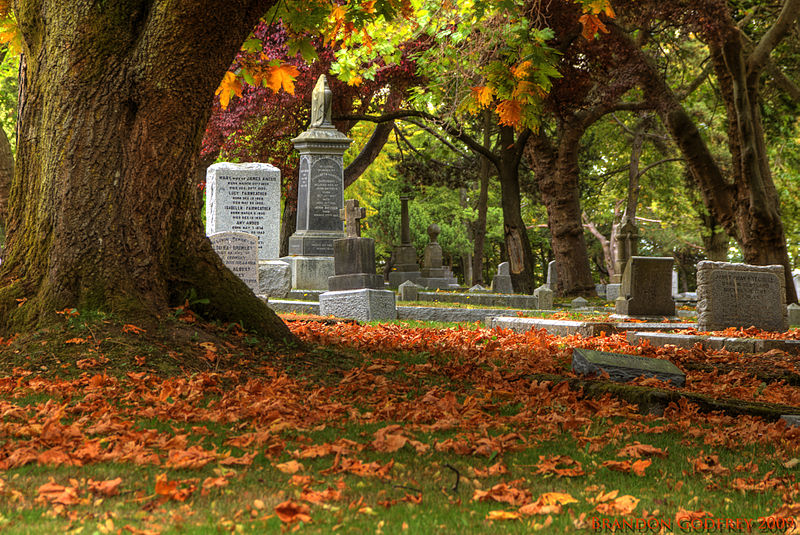Density — it’s a concept that governs housing development in the city of Vancouver, an area with limited land and lots of people who want to build.

But it doesn’t just apply to homes. B.C. cemeteries, too, are having to think about density when it comes to putting bodies in the ground.
WATCH: From 2015 — Cemetery clean-up
That’s according to Catherine Berris, a landscape architect and community planner at Urban Systems, who has a special interest in cemeteries.
She spoke with CKNW’s Steele and Drex on Wednesday about how, with finite land, cemeteries have to be creative.
“With an aging population, the death rate goes up and so we must deal with this situation,” she said.

Get breaking National news
“Because there is no new land in many municipalities that can be used for new cemeteries.”
READ MORE: ‘Save the foreign tax’: Cemetery advertises burial plots to foreign buyers
CKNW’s Lynda Steele asked Berris about a practice that allows families to buy plots and then stack deceased loved ones inside them.
Berris said that’s a concept she’s heard about from Israel, where bodies can be buried as much as four deep, or partially above the ground.
In B.C., she said she hasn’t seen any cemetery bury more than two deep.
“But certainly you could definitely increase your efficiency if you’re going much deeper with multi levels,” Berris said.
“Just like we’re going up we can go down!”
“Smart density for the dead,” is what CKNW’s Drex called it.
But stacking bodies isn’t the only method that people are using to save space.
“Scattering gardens,” spaces where cremated remains are spread in soil instead of burying bodies or placing remains in an urn, are becoming more common, Berris said.
“Then there can be some kind of garden or planting on top,” she said. “In addition to that, you can make some beautiful forms of commemoration.”
READ MORE: City removes beloved Lego figures from grave of 7-year-old cancer victim
But there are environmental factors to consider with scattering gardens, she added.
“You have to think about the cumulative effect of lots of cremated remains on environments, and in some cases, maybe rivers and things, and mountaintops,” Berris said.








Comments
Want to discuss? Please read our Commenting Policy first.